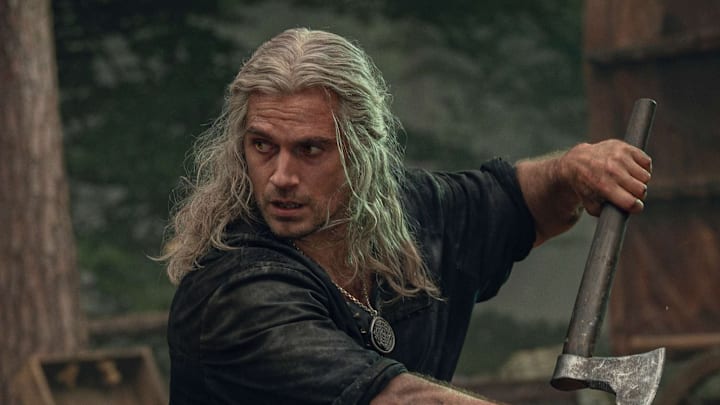Andrzej Sapkowski’s Witcher saga carved out a distinct place in fantasy literature. It blended Eastern European folklore with sardonic humor, brutal politics, and monsters that were both tragic as well as terrifying. If you’ve finished Geralt's journey, whether on the page, the screen, or the video game series, you’re likely hunting for that same blend of grit, heartbreak, and moral ambiguity.
Dark fantasy thrives on those shades of gray. Here are 10 books (and series) that carry the same spirit, each ready to fill the void left by your last adventure with the White Wolf himself.
The First Law Trilogy by Joe Abercrombie

Abercrombie is often called "Lord Grimdark" for good reason. His First Law trilogy (The Blade Itself, Before They Are Hanged, Last Argument of Kings) is brimming with mercenaries, torturers, and politicians who are absolutely fascinating.
Like Sapkowski, Abercrombie never gives easy answers, as his heroes commit atrocities, his villains reveal humanity, and survival often means compromise. It's a perfect match for Witcher fans who loved the political intrigue of Nilfgaard and the gallows humor of Geralt himself.
Prince of Thorns by Mark Lawrence

Jorg Ancrath, the antihero at the heart of Prince of Thorns, might make even Geralt raise an eyebrow. Vicious, cunning, and scarred by tragedy, Jorg's quest for power is as much psychological as it is physical. Lawrence’s prose is sharp, poetic, and unflinching. If you appreciated Sapkowski’s refusal to romanticize violence, Lawrence will give you the same honesty, just dialed up to eleven.
The Black Company by Glen Cook

If The Witcher novels leaned heavily on mercenary life, they might resemble Glen Cook’s Black Company series. Told from the perspective of Croaker, a soldier-turned-chronicler, the books explore what it means to fight for coin while caught between dark sorcery and oppressive empires.
It’s gritty, and it influenced Abercrombie, Sapkowski, and even Steven Erikson. Witcher fans will immediately recognize the weary camaraderie and moral compromise of life on the road.
The Poppy War by R.F. Kuang

Where Sapkowski borrowed from Slavic myth, Kuang pulls from 20th-century Chinese history. The Poppy War begins with academy drama before descending into visceral war and divine retribution. Its protagonist, Rin, discovers her shamanic abilities only to learn that gods are capricious, cruel, and demanding. It’s the same kind of bleak realization Geralt often faces, that power rarely comes without devastating cost.
The Traitor Baru Cormorant by Seth Dickinson

Political dark fantasy at its sharpest. Baru Cormorant is a financial prodigy determined to tear an empire down from within, even if it means betraying everyone she loves. Like Sapkowski's sharp commentary on prejudice and nationalism, Dickinson uses fantasy to probe colonialism, identity, and sacrifice. It's a cerebral, devastating read that fans of the Lodge of Sorceresses' scheming will appreciate.
For more Winter is Coming content directly in your Google feed, add us as a preferred source!
The Faithful and the Fallen by John Gwynne

For those who loved the epic scope of the Witcher games, Gwynne delivers battles on a cinematic scale. His series blends prophecy, ancient evils, and morally complex characters into an addictive tale of loyalty and betrayal. Gwynne excels at combat scenes, making every clash of sword and shield as visceral as Geralt's toughest contracts.
The Darkness That Comes Before by R. Scott Bakker

This one is heavier, denser, and unapologetically philosophical. Bakker's worldbuilding is a brutal blend of sorcery, crusades, and apocalypse. His characters wrestle with morality, free will, and manipulation in ways that echo Sapkowski's musings on destiny. If you liked the more intellectual, world-weary tone of Geralt's conversations, this series pushes those questions to the breaking point.
Empire of the Vampire by Jay Kristoff

Gothic to its core, Kristoff’s novel follows Gabriel de León, the last of an order of holy vampire hunters. Framed as a story told by Gabriel himself, it captures the same melancholy that made Geralt such a compelling narrator of his own life. The book is lavish, illustrated, and drenched in blood and betrayal, which is perfect for Witcher fans craving Gothic flair.
The Bright Sword by Lev Grossman

My personal favorite on this list, Lev Grossman reimagines Arthurian legend in a darker, more fractured light. The Bright Sword takes place after the fall of King Arthur, when a ragged band of would-be knights tries to rebuild a broken world. The tone is elegiac, exploring how myths curdle when the golden age ends.
Witcher fans will recognize the same melancholic undertones that made Geralt's world so compelling, containing heroes bound by duty even as the world no longer needs or rewards them. It’s a story about legacy, disillusionment, and finding shards of hope amid decay.
The Broken Earth Trilogy by N.K. Jemisin

Winner of three consecutive Hugo Awards, Jemisin's trilogy is a landmark in modern fantasy. Its crumbling world, systemic oppression, and survivalist themes resonate with the same bleak undertones as Sapkowski’s.
At its core, it's about individuals caught in cycles of violence and prejudice, desperately seeking a future that doesn’t consume them. Witcher fans who admired Sapkowski's social critiques will feel right at home.
What unites these books isn’t just swords, sorcery, or even monsters. It's the refusal to give readers easy answers. Much like Geralt wandering through a morally compromised Continent, the protagonists of these stories face impossible choices and enemies that reflect the darkness within. If The Witcher taught us anything, it's that fantasy is at its most powerful when it mirrors reality.
